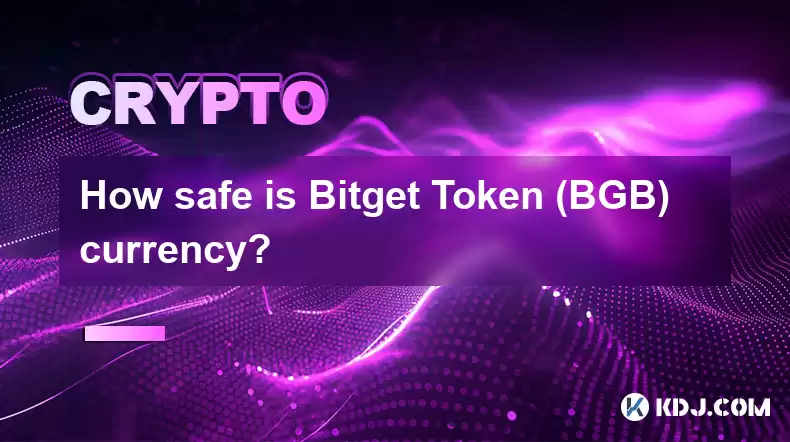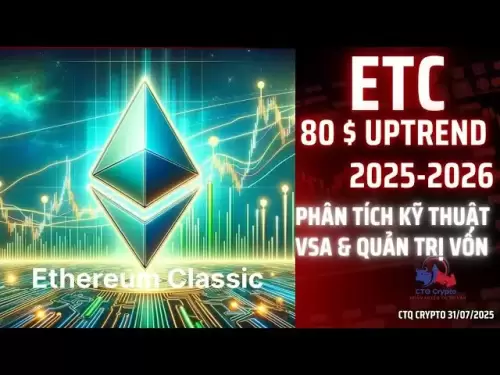-
 Bitcoin
Bitcoin $118400
0.47% -
 Ethereum
Ethereum $3836
2.20% -
 XRP
XRP $3.157
2.98% -
 Tether USDt
Tether USDt $0.9999
-0.03% -
 BNB
BNB $801.5
1.31% -
 Solana
Solana $180.9
2.07% -
 USDC
USDC $0.9999
-0.02% -
 Dogecoin
Dogecoin $0.2225
2.50% -
 TRON
TRON $0.3285
-1.02% -
 Cardano
Cardano $0.7789
2.60% -
 Hyperliquid
Hyperliquid $43.60
2.39% -
 Sui
Sui $3.892
4.41% -
 Stellar
Stellar $0.4229
3.34% -
 Chainlink
Chainlink $18.01
3.98% -
 Hedera
Hedera $0.2745
6.77% -
 Bitcoin Cash
Bitcoin Cash $582.3
3.38% -
 Avalanche
Avalanche $23.77
1.04% -
 Ethena USDe
Ethena USDe $1.001
0.01% -
 Toncoin
Toncoin $3.493
3.59% -
 Litecoin
Litecoin $110.0
2.48% -
 UNUS SED LEO
UNUS SED LEO $8.936
-0.37% -
 Shiba Inu
Shiba Inu $0.00001304
2.49% -
 Uniswap
Uniswap $9.999
1.09% -
 Polkadot
Polkadot $3.897
3.26% -
 Monero
Monero $308.6
-0.83% -
 Dai
Dai $0.9999
-0.01% -
 Bitget Token
Bitget Token $4.504
-0.04% -
 Pepe
Pepe $0.00001154
2.95% -
 Cronos
Cronos $0.1471
3.06% -
 Ethena
Ethena $0.6691
19.53%
How safe is Bitget Token (BGB) currency?
Bitget Token (BGB) is a secure investment, thanks to the exchange's robust multi-layer security protocol, KYC/AML procedures, custody partnership with Fireblocks, and strong liquidity and insurance program.
Dec 29, 2024 at 05:51 am

Key Points of Article:
- Understanding Bitget Token (BGB) Security Measures
- Layer of Security Protocol
- Robust KYC and AML Procedures
- Custody Partner and Token Assurance
- Strong Liquidity and Insurance Program
Understanding Bitget Token (BGB) Security Measures
Bitget Token (BGB) is a native cryptocurrency of the Bitget exchange, a leading global platform for crypto trading. Security is of paramount importance in the cryptocurrency realm, and Bitget takes robust measures to ensure the safety of its users and their assets. This article delves into the comprehensive security features implemented by Bitget to safeguard BGB and its users.
Layer of Security Protocol
Bitget's security infrastructure is underpinned by multiple layers of protection:
- SSL (Secure Sockets Layer) Encryption: All communication between users and the Bitget platform is encrypted using industry-standard SSL protocols, safeguarding data from eavesdropping and tampering.
- Multi-Factor Authentication (MFA): Users are required to enable MFA, which adds an extra layer of security by requiring two or more authentication factors, such as a password, a one-time code sent via SMS, or biometrics.
- Cold Storage Custody: The majority of BGB holdings are stored in offline, "cold" wallets, which are not connected to the internet and remain immune to online attacks and theft attempts.
- Secure HD Wallet: Bitget employs advanced Hierarchical Deterministic (HD) wallets, which provide robust key management and distribute private keys across multiple layers for enhanced protection.
Robust KYC and AML Procedures
Bitget adheres to stringent Know Your Customer (KYC) and Anti-Money Laundering (AML) protocols:
- Identity Verification: Users must undergo a comprehensive KYC process by submitting official government-issued identification documents, such as passports or driver's licenses.
- Address Verification: In addition to identity verification, Bitget requires users to provide proof of residence, typically in the form of utility bills or bank statements.
- Transaction Monitoring: Bitget employs advanced transaction monitoring systems that screen all activities for suspicious behavior, including large or unusual transactions.
- Compliance with Regulatory Bodies: Bitget operates in accordance with global regulatory frameworks, such as the Financial Action Task Force (FATF), to prevent money laundering, terrorism financing, and other illegal activities.
Custody Partner and Token Assurance
Bitget entrusts the safekeeping of BGB assets to a reputable third-party custodian, Fireblocks:
- Fireblocks as Custodian: Fireblocks is a leading crypto custody provider, known for its robust security measures and insurance coverage. BGB is held in Fireblocks' insured wallets, providing an additional layer of protection.
- Bitget Token Assurance Fund (BTAF): Bitget has established the BTAF, a fund that provides financial support to users who have suffered losses due to security breaches or other unexpected events.
- Collaboration with Leading Security Firms: Bitget collaborates with renowned security firms, such as SlowMist, to conduct regular security audits and vulnerability assessments.
Strong Liquidity and Insurance Program
Bitget maintains high liquidity reserves and has implemented a comprehensive insurance program:
- High Liquidity: Bitget maintains deep order books and facilitates high trading volumes, ensuring that users can easily execute trades and withdraw funds without experiencing significant delays.
- Insurance Coverage: Bitget has partnered with reputable insurance providers to offer coverage for BGB storage and custody, providing additional peace of mind to users.
- Compensation Fund: In the unlikely event of a security breach or loss of funds, Bitget has established a compensation fund to reimburse affected users.
Frequently Asked Questions (FAQs)
Q: Is Bitget Token (BGB) a secure investment?
A: Bitget employs a comprehensive suite of security measures, including SSL encryption, MFA, cold storage, KYC/AML procedures, and a custodian partnership with Fireblocks. These measures provide a high level of protection for BGB and its users.
Q: How often does Bitget audit its security systems?
A: Bitget collaborates with leading security firms to conduct regular security audits and vulnerability assessments, ensuring the effectiveness and robustness of its security measures.
Q: What is the role of the Bitget Token Assurance Fund (BTAF)?
A: The BTAF provides financial support to users who have suffered losses due to security breaches or other unexpected events, offering an additional layer of protection and reassurance.
Q: Does Bitget offer insurance coverage for BGB?
A: Yes, Bitget has partnered with reputable insurance providers to offer coverage for BGB storage and custody, providing additional protection for users' assets.
Q: Can I recover my funds in case of a security breach?
A: Bitget has established a compensation fund to reimburse affected users in the unlikely event of a security breach or loss of funds, providing users with peace of mind.
Disclaimer:info@kdj.com
The information provided is not trading advice. kdj.com does not assume any responsibility for any investments made based on the information provided in this article. Cryptocurrencies are highly volatile and it is highly recommended that you invest with caution after thorough research!
If you believe that the content used on this website infringes your copyright, please contact us immediately (info@kdj.com) and we will delete it promptly.
- Ozak AI: Can This Underdog Crypto Achieve a Bull Run to $1?
- 2025-07-31 22:30:12
- Coinbase Breach: Navigating Insider Risk and Bolstering Security
- 2025-07-31 23:11:55
- Bitcoin Rebounds, WeWake Presale Gains Traction: What's the Buzz?
- 2025-07-31 22:30:12
- Bitcoin, Altcoins, and Volume Watchlists: Decoding the Crypto Landscape
- 2025-07-31 23:11:55
- Tron, Fartcoin, and BlockchainFX: What's Trending (and What's Not) in the Crypto World
- 2025-07-31 21:32:19
- Bitcoin, Corporate Investments, and Sustainability: A New Era or Fleeting Fad?
- 2025-07-31 20:50:14
Related knowledge

What is Chainlink (LINK)?
Jul 22,2025 at 02:14am
Understanding Chainlink (LINK): The Decentralized Oracle NetworkChainlink is a decentralized oracle network designed to bridge the gap between blockch...

What is Avalanche (AVAX)?
Jul 22,2025 at 08:35am
What is Avalanche (AVAX)?Avalanche (AVAX) is a decentralized, open-source blockchain platform designed to support high-performance decentralized appli...

What is Polkadot (DOT)?
Jul 19,2025 at 06:35pm
Understanding the Basics of Polkadot (DOT)Polkadot (DOT) is a multi-chain network protocol designed to enable different blockchains to transfer messag...

What is Litecoin (LTC)?
Jul 23,2025 at 11:35am
Overview of Litecoin (LTC)Litecoin (LTC) is a peer-to-peer cryptocurrency that was created in 2011 by Charlie Lee, a former Google engineer. It is oft...

What is Monero (XMR)?
Jul 21,2025 at 10:07am
What is Monero (XMR)?Monero (XMR) is a decentralized cryptocurrency designed to provide enhanced privacy and anonymity for its users. Unlike Bitcoin a...

How to add indicators to Ethereum chart on TradingView?
Jul 19,2025 at 07:15am
What Is an Ethereum Chart on TradingView?The Ethereum chart on TradingView is a visual representation of the price movement of Ethereum (ETH) over a s...

What is Chainlink (LINK)?
Jul 22,2025 at 02:14am
Understanding Chainlink (LINK): The Decentralized Oracle NetworkChainlink is a decentralized oracle network designed to bridge the gap between blockch...

What is Avalanche (AVAX)?
Jul 22,2025 at 08:35am
What is Avalanche (AVAX)?Avalanche (AVAX) is a decentralized, open-source blockchain platform designed to support high-performance decentralized appli...

What is Polkadot (DOT)?
Jul 19,2025 at 06:35pm
Understanding the Basics of Polkadot (DOT)Polkadot (DOT) is a multi-chain network protocol designed to enable different blockchains to transfer messag...

What is Litecoin (LTC)?
Jul 23,2025 at 11:35am
Overview of Litecoin (LTC)Litecoin (LTC) is a peer-to-peer cryptocurrency that was created in 2011 by Charlie Lee, a former Google engineer. It is oft...

What is Monero (XMR)?
Jul 21,2025 at 10:07am
What is Monero (XMR)?Monero (XMR) is a decentralized cryptocurrency designed to provide enhanced privacy and anonymity for its users. Unlike Bitcoin a...

How to add indicators to Ethereum chart on TradingView?
Jul 19,2025 at 07:15am
What Is an Ethereum Chart on TradingView?The Ethereum chart on TradingView is a visual representation of the price movement of Ethereum (ETH) over a s...
See all articles

























































































